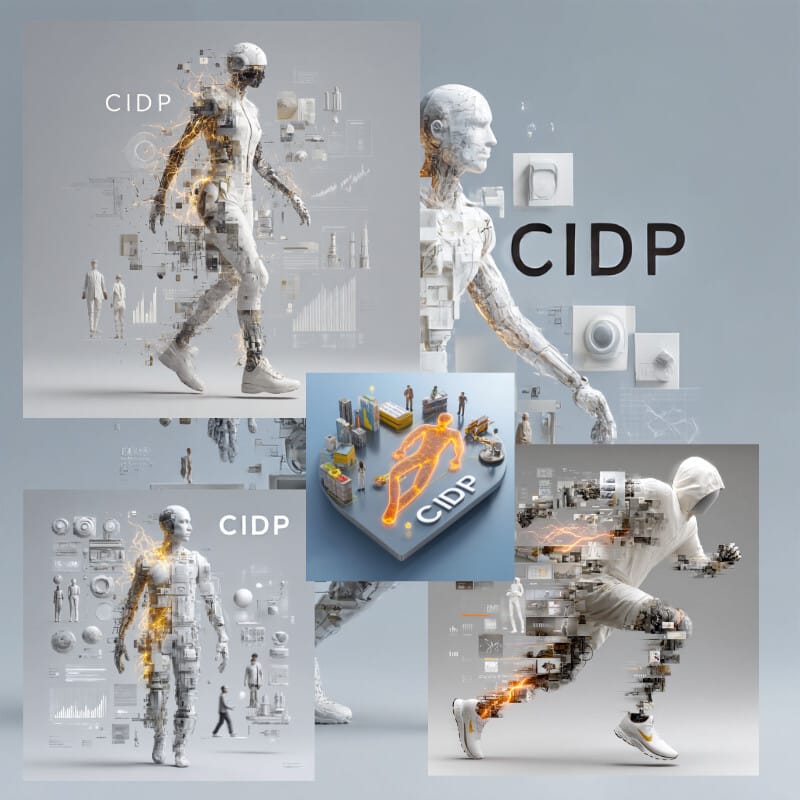- Cidpedia
- Posts
- Cidpedia Newsletter
Cidpedia Newsletter
ISSUE #15 JULY 8 2025
🌟 Cidpedia your Central Texas Resource
ALWAYS FRESH - Start your week empowered - CIDP updates, resources, and encouragement await! |
Trusted Information and Community for CIDP Patients, Caregivers, and Professionals |
Table of Contents:
Perils of Social Media
Quick Reads & Essential Links:
1-CIDP Research Update: Rituximab Shows Promise
2-Mark Your Calendar: 2025 International Symposium
3-Pipeline Progress: Multiple CIDP Therapies Advancing
4-Community Spotlight: Rare Disease Day 2025
Resources for Safe Social Media Navigation
Disclaimer

Follow Me
The Double-Edged Screen: Social Media's Promise and Peril for Our Community
Living with CIDP often means spending more time at home, more time online, and more time searching for answers that sometimes feel impossible to find. Social media has become our lifeline - connecting us with others who understand our journey, sharing treatment updates, and providing the community support that face-to-face interactions can't always offer.
But here's what we need to talk about: 85% of social media posts about medical tests provide misleading or potentially harmful false medical advice1. That's not a small problem - that's a crisis affecting our community every single day.
The Doom Scroll Trap
Recent research from University College London reveals something many of us already know but haven't named: doom scrolling makes you more depressed2. The study found that people with worse mental health are more likely to read negative content online, which then makes them feel worse, creating a destructive spiral.
For those of us managing CIDP, this hits particularly hard. We're already dealing with:
Uncertainty about our condition
Physical limitations that keep us more isolated
The need for reliable medical information
Anxiety about treatment options and outcomes
When we're stuck at home during a flare-up or between treatments, social media becomes our window to the world. But that window can quickly become a funhouse mirror, distorting reality and amplifying our fears.
The Misinformation Machine
Here's what makes healthcare misinformation so dangerous on social media: it often contains a "kernel of truth" that makes it more believable3. Posts aren't completely false - they're information without context, cherry-picked statistics, or old images recirculating as current news.
Common red flags we see in CIDP-related social media:
Miracle cures that sound "too good to be true"
Extreme remedies without scientific backing
Information presented without credible medical sources
Content that contradicts established medical guidelines
Personal stories treated as universal medical advice4
A study published in JAMA Network Open found that only 6% of health influencer posts included medical evidence, while over two-thirds had financial incentives to promote the treatments they discussed1.

Health Sponsored
The CIDP Community Difference
But here's where our community gets it right: chronic illness patients who engage with peer communities report feeling less isolated and more empowered5. Social media serves genuine purposes for us:
Real-time support: When you're having a bad day at 2 AM, someone in our community understands
Practical advice: Tips for managing symptoms, navigating insurance, or preparing for doctor visits
Treatment insights: Hearing real experiences with medications like VYVGART or IVIg
Advocacy power: Collective voices that can influence research and policy6
Smart Scrolling Strategies
Before you share or react to health information:
Check the source: Is this from a medical professional or credible health organization?
Look for citations: Does the post reference actual studies or medical literature?
Consider the motivation: Is this content designed to sell something or promote a specific agenda?
Verify with trusted sources: Cross-check claims with your healthcare team or established medical resources4
Red flag phrases to watch for:
"Doctors don't want you to know this"
"One simple trick cures [condition]"
"100% guaranteed results"
"Big pharma is hiding the truth"7

Verify your Feeds
Building a Healthier Feed
For CIDP patients, a healthy social media experience includes:
Following verified medical organizations and researchers
Joining moderated support groups with clear community guidelines
Setting time limits for health-related scrolling
Unfollowing accounts that consistently share unverified information
Engaging with content that promotes hope without false promises8
The GBS|CIDP Foundation's Approach
The GBS|CIDP Foundation demonstrates how social media can work for our community. Their platforms focus on:
Verified medical information
Patient success stories grounded in reality
Educational webinars with medical experts
Community support that acknowledges both struggles and victories9
When Social Media Becomes Overwhelming
Signs it's time to step back:
Increased anxiety after browsing health content
Feeling hopeless about your condition after reading posts
Comparing your journey negatively to others
Spending hours researching symptoms or treatments online10
Healthy alternatives:
Call your healthcare team with specific questions
Join structured support groups with professional moderation
Focus on offline activities that bring you joy
Connect one-on-one with trusted friends from the community

You Always Fit
Moving Forward Together
Social media isn't going anywhere, and neither is our need for community and information. The goal isn't to avoid these platforms entirely - it's to use them wisely. We can be both connected and protected, informed and discerning.
Remember: your lived experience with CIDP is valuable, but it's not universal medical advice. When we share our stories, let's include the context - what worked for you might not work for everyone, and that's okay.
Quick Reads & Essential Links

That Makes Sense
1- CIDP Research Update: Rituximab Shows Promise
New research suggests rituximab may benefit CIDP patients, with improvements in neurofilament levels and clinical outcomes. While still under investigation, this adds to the growing toolkit of treatment options.
Quick Link: Rituximab Research Findings11
2- Mark Your Calendar: 2025 International Symposium
The GBS|CIDP Foundation's 2025 International Symposium is set for September 11-13 in Denver, Colorado. This biennial event brings together patients, caregivers, and world-leading experts.
Quick Link: Symposium Details12

Hot Data
3- Pipeline Progress: Multiple CIDP Therapies Advancing
Several promising treatments are moving through clinical trials, including Sanofi's Riliprubart (Phase III) and Immunovant's Batoclimab (Phase II). The next 3-5 years could bring unprecedented treatment options.
Quick Link: CIDP Pipeline Report13
4- Community Spotlight: Rare Disease Day 2025
2025 may be past but be ready for 2026 and help support the 30 million Americans living with rare diseases.
Quick Link: Rare Disease Day
Resources for Safe Social Media Navigation
U.S. Surgeon General's Health Misinformation Toolkit: Download Here3
How to Spot Medical Misinformation: CNBC Guide7
GBS|CIDP Foundation Social Media: Connect Safely9
https://www.dw.com/en/most-social-media-medical-advice-is-misinformation/a-71773131
https://www.hhs.gov/sites/default/files/health-misinformation-toolkit-english.pdf
https://www.woodcountyhospital.org/news/articles/how-to-spot-misinformation-on-social-media
https://www.cnbc.com/2024/09/28/heres-how-to-spot-medical-misinformation-on-social-media.html

📅 Closing Thoughts & How to Get Involved
Take advantage of these newsletters if you can, ask questions, and share what works for you. Together, we’re building a stronger, more informed CIDP community.
Want to support Cidpedia?
Share this newsletter, consider a small donation, or send us your feedback. Every voice matters.
Stay strong, stay informed, and stay connected!
Warm regards,
Richard Aikman
Editor, CIDPedia
⚠️ Disclaimer
Let's get something important out in the open: WE ARE NOT DOCTORS and WE ARE NOT GIVING ADVICE! Everything we share comes from my personal journey living with CIDP, from research and from MY healthcare TEAM. While I've walked this path for a number of years, please remember: This content is based on personal experience and publicly available information. It is not intended to diagnose, treat, cure, or prevent any disease. Always consult qualified healthcare providers for medical advice, what works for others may not work for you. |
Cidpedia is an independent, patient-led newsletter. All information provided is for educational and informational purposes only and is not intended as medical advice, diagnosis, or treatment. We are not medical professionals. Always consult your physician or qualified health provider with any questions regarding your health or medical conditions. We respect your privacy and adhere to HIPAA guidelines when sharing stories or community contributions. All shared experiences are anonymized unless explicit permission is granted |
Stay strong, stay curious, and keep shuffling forward. 🌱


Reply